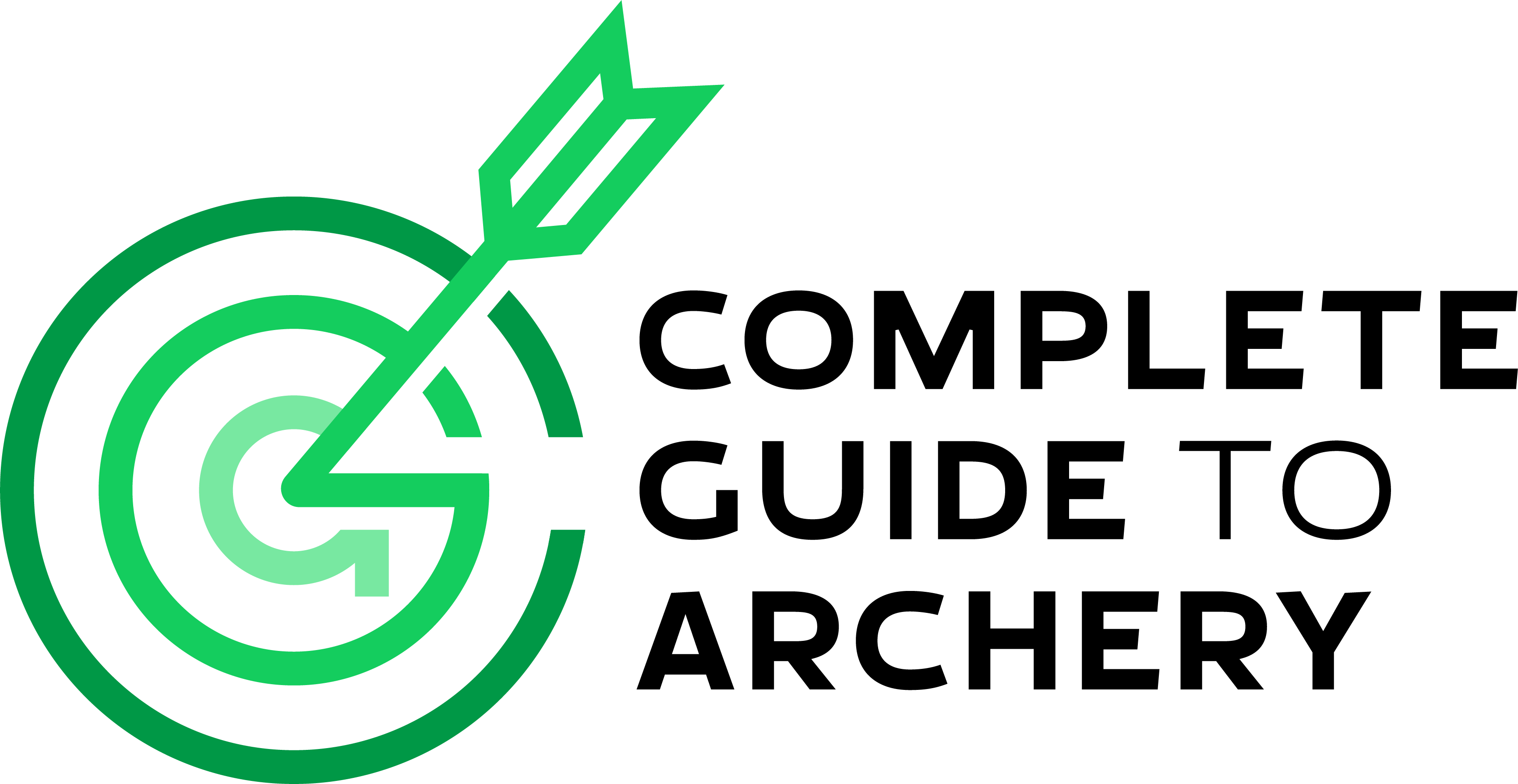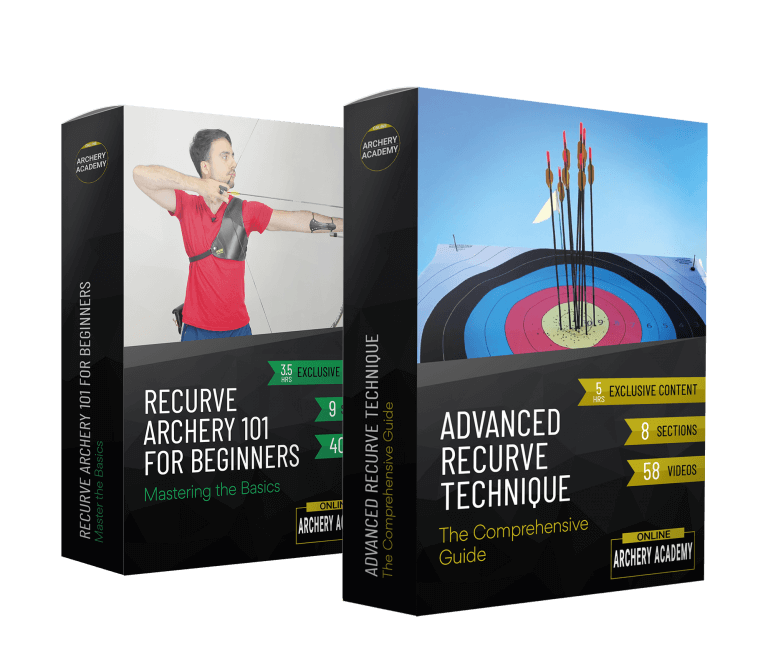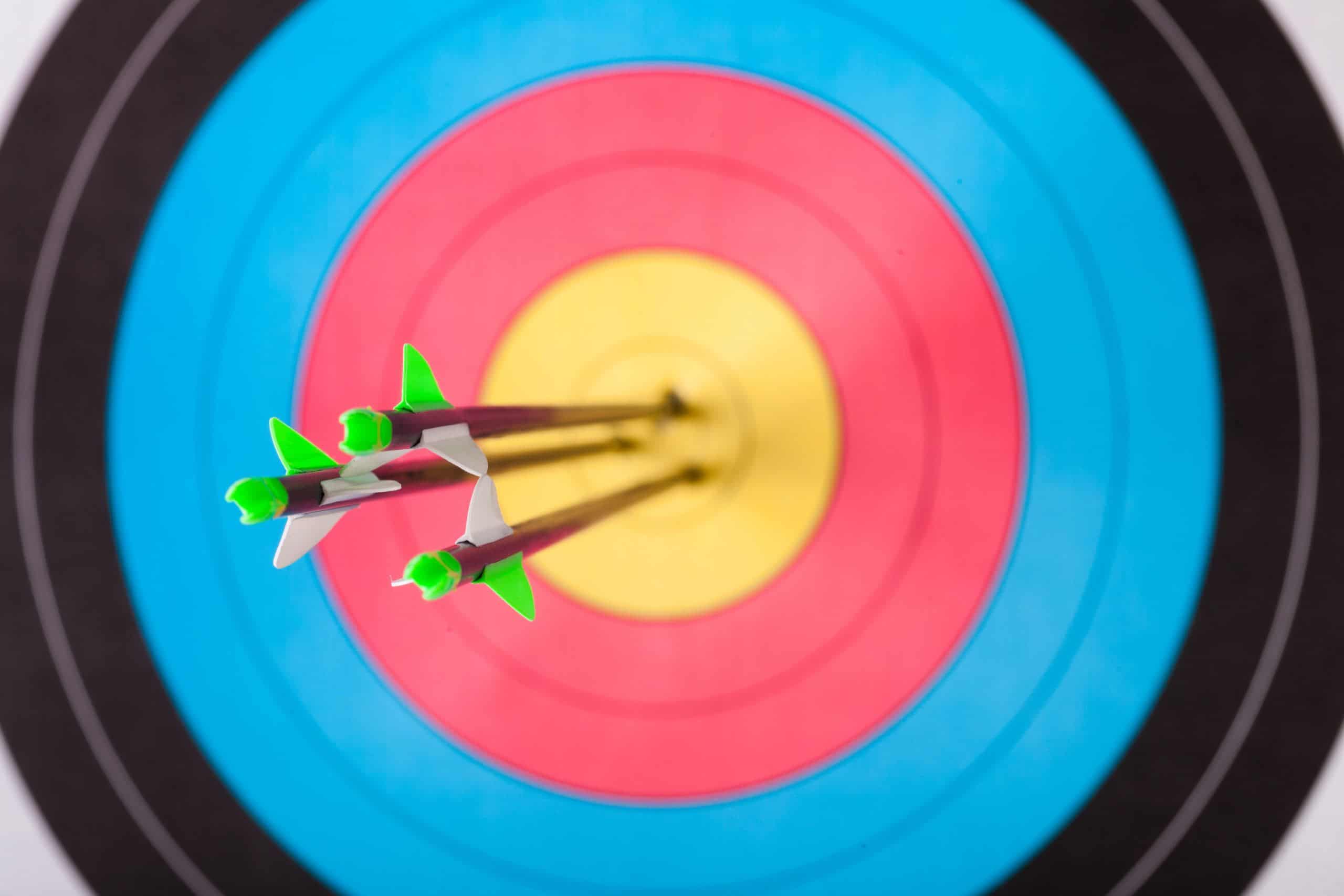Here’s a hard truth we all live by, whether we realize it or not: no matter what your goal, your ability to concentrate determines whether you will succeed or whether you fail.
It’s a hard, plain, inescapable fact. Your ability to quiet that inner voice, shut out all external stimuli, and concentrate on your task is of the utmost importance, and you won’t achieve your goals without that ability.
This is true for archery, but also for whatever objective you’re targeting. Maintain your attention, and your chances of succeeding increase. Lose your focus, and your chances of succeeding decrease. It’s simple but it’s true. So…

In the post below, we’ll take a deep dive into attention. We’ll discuss a dozen different exercises you do to increase your ability to concentrate, and we’ll go over techniques you can use to keep your mind on point.
Keep in mind, this post isn’t just for archers. While the ability to concentrate is perhaps one of the most important skills an archer can have, we don’t really talk about archery at all in this post. This post is about developing your attention, so you can achieve your goals—be they in archery, or whatever else you’re doing.
Let’s dive in and take a look… before we get distracted!
Concentration Techniques to Increase Your Focus
It took two weeks to research and write this post, and here’s what we’ve found: the twelve most effective ways to build your attention and concentration.
We’ll start with an incredibly powerful tool, one may seem a bit vague at first, but one that can be all you need to focus your mind:
Repeat: “Be Here Now”
Yes, “be here now.” You may have come across this phrase before, and you may have dismissed it, because… where else you gonna be? Miami, two weeks ago? Of course you’re here now! How could you NOT be here, right now? You can’t be anywhere else, at any other time.
Dig a little deeper, though, and the phrase can magnify your ability to focus ten-fold.
Basically, it’s a direction: live in the present moment, and don’t get distracted by your past (your experiences, your accomplishments, your regrets), and don’t get distracted by your future (your hopes, your worries, your plans). Be here, in the present, right now.
Easy enough, right? Focus on the task at hand.
Here’s the thing:
Our minds are *remarkably* chatty, and *remarkably* intrusive. If you’ve ever tried to sit still and quiet your mind, you might have realized—fairly quickly—that it’s basically impossible. Even if you’ve been practicing focused attention for years, like monks, surgeons, archers, and a bunch of other people do, your mind is going to slip away from your task.
You can be aiming a bow, working on your chemistry homework, or composing an email for work, and without realizing it, all of sudden, you’re daydreaming about an upcoming vacation, how much you hate Ted in accounting, or what your favorite desert is. Sometimes you get distracted by words, sometimes you get distracted by images, sometimes you get distracted by physical sensations.
Whatever it is, it’s taking you away from right here, right now. It’s human nature, and there’s no getting around it. Our minds are ROAMERS, and trying to focus your mind is like trying to herd cats.
If that sounds ridiculous, then give it a shot, right now. Sit still, place your hands in your lap, and try to quiet your mind and focus on your breathing. Just the in-out, in-out, in-out of your breathing.
Chances are your mind strayed within seconds.
Is it any wonder that focusing your attention and concentrating on a task is difficult? How could it NOT be? Your brain won’t shut up! It’s really kind of amazing we get anything done at all.
“Be here now” is a reminder to catch your mind when it roams off, and bring it back to the task at hand. After all, the only thing you will ever truly have is the present moment. That’s it. It’s true right now, and it’ll be true ten years from now. You can only do things right now.
So whenever your mind begins to wander, remind (“re-mind”) yourself: “be here now.” Make it your mantra, and practice it. Be here now, be here now, be here now.
Keep practicing, and your mind will develop the ability to redirect back to the task at hand. It’s not unbreakable focus, but it can be just as powerful.
If you want to *really* get good at bringing your attention back to the task at hand, you can practice…
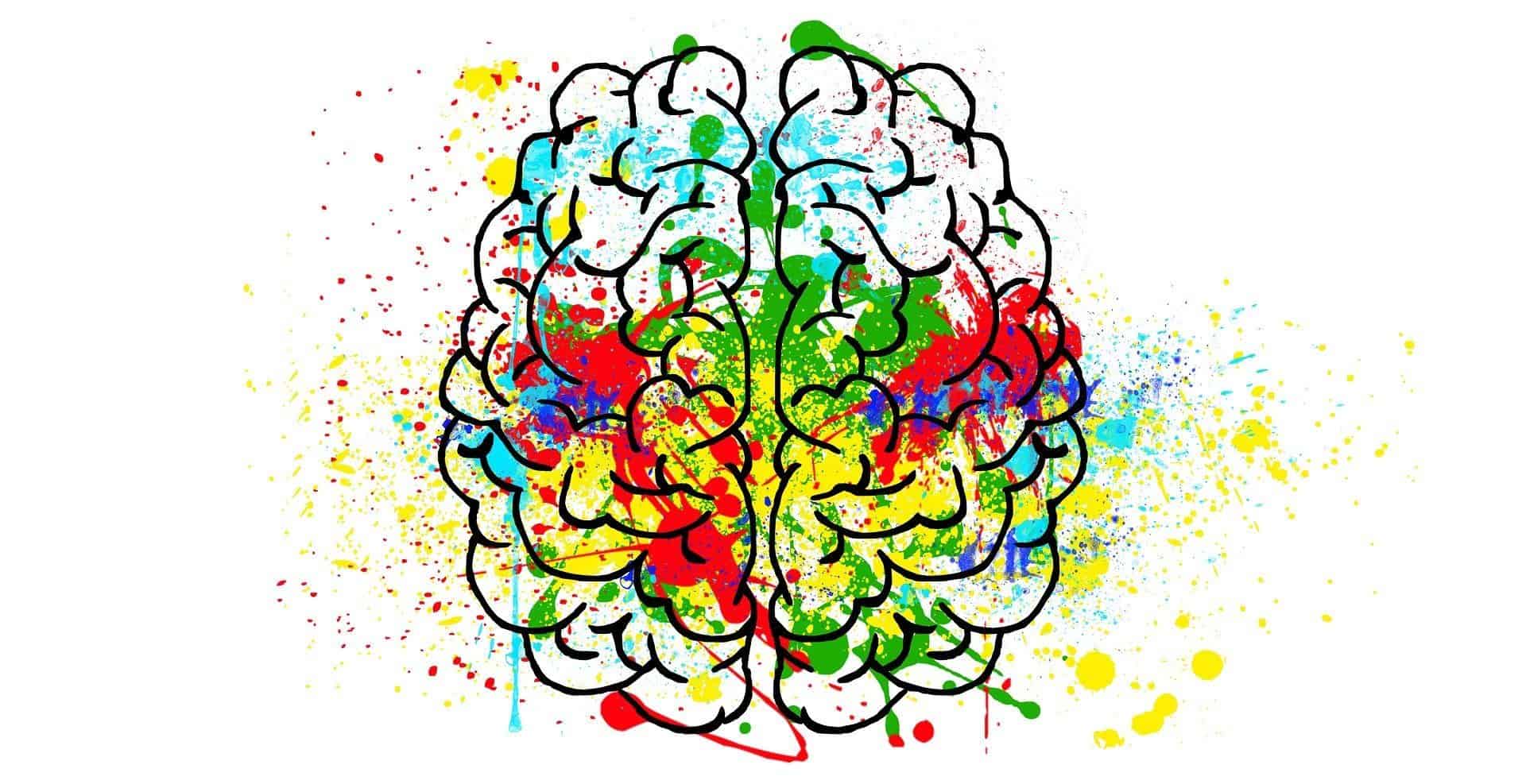
Mindfulness Meditation, aka Re-Focusing
Yes, meditation. We’re going to get all philosophical for a minute, but hang with us. This isn’t wishy-washy nonsense—in fact, it’s hard science, proven over the course of hundreds of scientific studies and thousands of years of practice: here’s a study that shows meditation increases attention and concentration; here’s another; here’s another; here’s another; and here’s another. There are plenty more, but you get the point.
Here’s the wonderful thing about it: you don’t need to climb a mountain top, reject materials things, and devote your life to monastic pursuits. You can meditate for only *five* minutes a day and see benefits.
And, not only that, but it’s incredibly easy to learn. We’re going to teach you how to meditate, right now, and it’ll only take us about twenty seconds. Here it is, in bullet points:
> Find a quiet place, and sit down. Sit down on a chair, get on top of a pillow and cross your legs, whatever. Doesn’t matter.
> Get comfy and close your eyes. Place your hands in your lap, or wherever is comfortable. Also doesn’t matter.
> Relax. Loosen up your face muscles, your neck muscles, and your shoulder muscles, and when you’ve done that, loosen up your belly.
> Breathe through your nose, and focus your breath. Listen to it and feel it going in, out, in, out, in, out, etc.
> When your mind wanders, dismiss whatever thought occurred to you, and re-focus on your breathing. In, out, in, out.
And… that’s it! Seriously, that’s it. That’s a basic meditation you can do every day for the rest of your life. The wisdom of the ages, brought you by some dude writing for an archery website. Go forth and prosper peacefully, and watch your ability to focus and concentrate grow.
There are many reasons why it works—and a lot of neurological processes that we will admit, are waaaaaaay beyond our understanding—but here’s one reason: you’re willfully practicing the “be here now” mentality. Every time your mind loses focus on your breath, you re-focus on it, and in doing so, strengthen your ability to re-focus. After days and weeks and months of doing this for just five minutes a day, your ability to re-focus and concentrate can grow exponentially.
In fact, that’s a great way to understand meditation: it’s practicing re-focus. Focus your attention, get distracted, re-focus. Repeat. You can copy that down and tweet it out if you want.
After a few days and weeks or practicing that re-focus, you can bring that capability to whatever task you wish. Archery, homework, whatever.

Use the Pomodoro Technique
You may have heard of the Pomodoro Technique before, but you’ve probably heard of it as a time management technique. Basically, it’s a tool to help you manage your tasks into small, 25-minute chunks that keep you from getting burned out or overworked. Set a timer for 25 minutes, get to work, and when the timer goes off, take a 15-minute break, and then start another 25-minute task. People swear by it, and it can be a great way to make yourself more efficient and effective.
Fun fact before we go on: “pomodoro” is Italian for “tomato.” The guy who came up with the technique, Francesco Cirillo, used a timer that looked like a tomato, so he named it the Pomodoro Technique. Now you know.
Here’s the thing: while the technique can be a great way to organize your day, we’ve found that it’s a great way to keep you focused. By organizing your time into manageable chunks, you’re more alert, and less likely to get seduced by all those thoughts that will distract you. You experience less “brain fatigue,” if you will.
So give a shot. You may find that not only do you get more done, but you’re able to focus more affectively. And, you may find that 25 minutes is too much for you, and if that’s the case, you should…
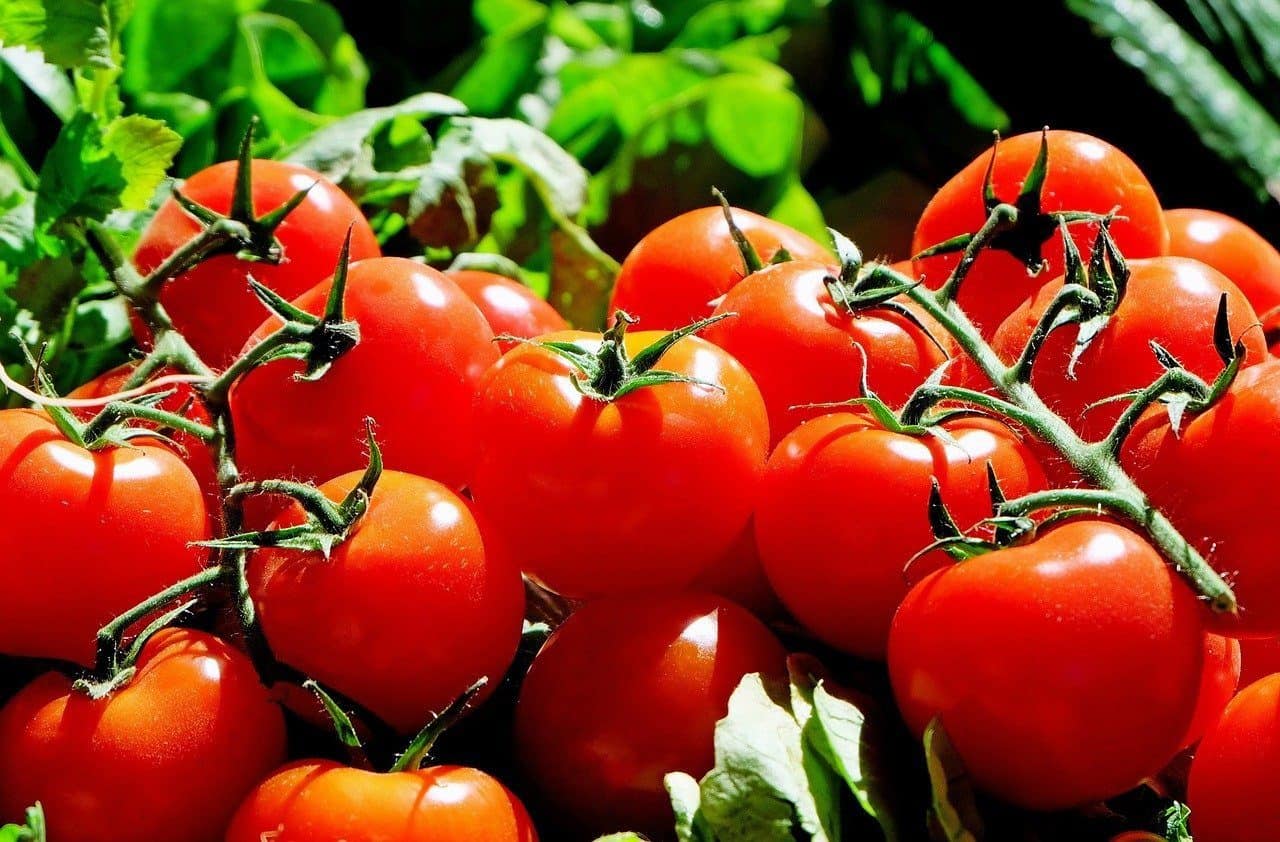
Find Your Rhythms / Peak Operating Times
Like almost anything we do with our body, focusing our brain requires us to exert a certain level of energy, and the level of energy required will also depend on the task we are trying to focus on. Learning what kind of timing works best for you and your task will allow you to manage your energy and focus.
In other words, figure out exactly for how long you can concentrate on a specific task, and do it for that length of time. Take a break, and then get back to it.
The trick is to find the length of time you can concentrate on a specific task. Set a timer during an activity, and then stop the timer once you notice that you can’t control your attention anymore. You’ll likely find that “fun” tasks are easier than “chore-like” tasks—it’s very easy to focus for an hour and a half on an excellent film, but even half an hour concentrating on a boring lecture is a lot harder—buy you may be surprised to find that certain “un-fun” hold your attention well very (and we’ll talk about that later). Also keep in mind that you may eventually lose focus even on something you find enjoyable, because attention spans are limited—we are human, after all.
You can think of this as “optimizing” focus, rather than “improving” focus, and because your energy levels change throughout the day, you can even do this experiment at different times of day—chances are you will have an easier time focusing in the morning, but a harder time focusing after a big lunch, for example.
Once you’ve figured all that out, you can…
Organize Your Schedule and Construct Your Time
By playing around with a timer and learning exactly for how long you can maintain focus, as well as when in the day you can focus the most and when you can focus the least, you can plan your schedule accordingly. Do things that will require a lot of focus at times when you can usually concentrate more easily, and switch tasks only once your concentration wanes.
This way, you can also figure out your personalized version of the pomodoro technique, which we discussed above.
Now you’re cooking, but you should always remember to…
Take Breaks… Even If You Don’t Want To
Don’t listen to the nay-sayers who will call you lazy: research proves that breaks are a very important part of staying focused. You can schedule your breaks into your daily routine, especially if you know exactly how long you can spend focused on a task. For example, if you can keep focused on something for half an hour, plan to take a 5-minute break after 30 minutes of working.
Sometimes, however, just taking a break when you need it can also be very important. Your focus will change from day to day based on a variety of factors, so if you find yourself mid-task halfway through a timed session, it can be better to just cut your losses and take a break earlier.
During your break you can go outside for some fresh air, do a bit of exercise, eat a snack, watch a funny video, or find a comfortable place to sit for a 5-minute mindfulness exercise. These are all activities that can help you focus again once it’s time to resume paying attention, and they can rejuvenate you a little bit.
We should mention this, because breaktime can be abused—if you’re taking a break just to avoid work, that’s not great, and it’s not what we’re talking about. Breaks should be about re-energizing, and not avoidance.
If you find that you’re usually able to focus on a task, but a particular task is like “concentration-repellant,” you may need to look at the actual tasks you’re selecting, and that’s why we love this next tip:
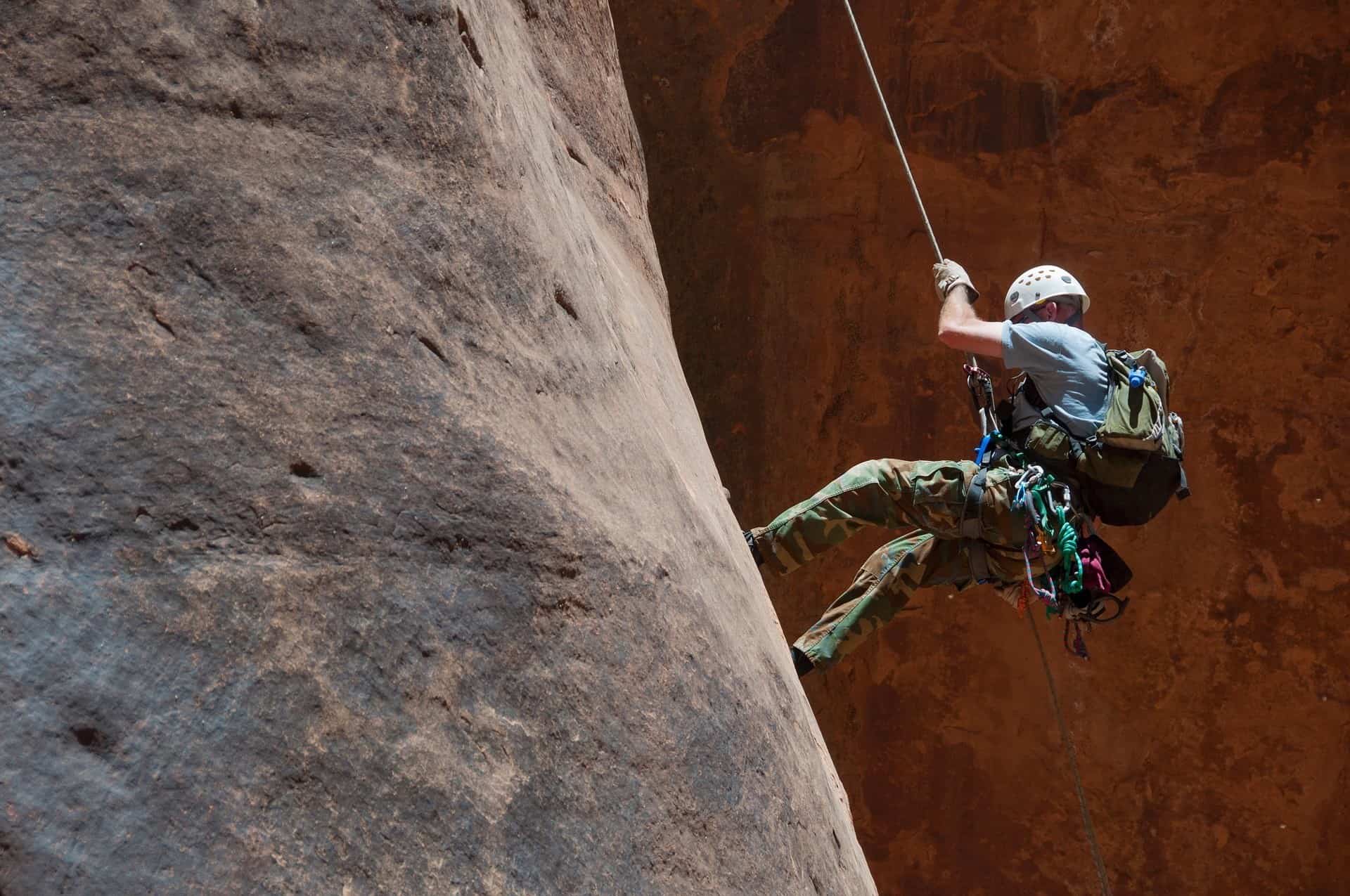
Get into Zone by Entering a “Flow State”
This is our favorite entry, by far.
Have you ever found yourself “in the zone”? Maybe you were participating in a sporting event, and you were on fire and couldn’t be stopped. Maybe you were taking a test and aced it—even though you were unsure of the answers before you started. Maybe you were getting work done around the house and you managed to accomplish more tasks in a day than you usually do in an entire week.
We all usually refer to that as being “in the zone.” But believe it or not, there’s a scientific term for it, and a man named Mihaly Csíkszentmihályi (pronounced, “Cheeks-Me-Hal…” ummmm we don’t know how to pronounce it, but that’s his name) has made “zone” the focus of his career.
He describes it as total absorption in an activity—an immersion so complete that total concentration is achieved.
Mr. C, as we’ll call him, wrote that there are eight components to flow states. A person “in the zone” must feel:
1. Total concentration on the task at hand;
2. Total clarity on the goal, with a specific reward in mind;
3. “Timelessness,” where you get so immersed in the task that you don’t know how much time has passed;
4. Joyful execution—the experience of doing the task is personally rewarding;
5. EASE—the tasks are executed with ease, because there is…
6. A perfect match between the task and the skills required;
7. Zero self-consciousness—concerns not related to the task are not present; and finally
8. A feeling of control over the activity and the task at hand.
Find a task where you can meet all eight of those features, and write to us and tell us what focus feels like!
Here’s why this section is fascinating, and why it’s so much different than the other tips on this list:
It points to how *personal* focus can be: yes, you can develop focus, and focus on whatever task you want—but very often, you will be better able to focus on a task that you find truly rewarding, and that you’re good at. Maybe instead of trying to learn how to focus on tasks you don’t really like, you need to change your focus, and simply find tasks that you like—and focus/concentration/attention will come much easier to you.
But it also points how important SKILL is to focus. When you complete a challenging task with ease, there is joy in it, and it allows you to focus more attentively. When you are unskilled at a task, it’s very difficult to enter a flow state and realize intense focus. Therefore, one way to increase your ability to focus on a given task is to increase your skill at that task.
Take a look at these eight factors again, and see what other insights you can make. If “being in the zone” is something you can practice, it’s something worth getting good at!
Minimize Distractions and Mind Traps
This suggestion might seem a little obvious, but it’s easy to overlook: minimizing distractions is key for not getting distracted. Even the most mindful and present person will struggle to focus when someone is speaking to them or when they see notifications flashing on their phone.
Minimizing distractions will require different actions from circumstance to circumstance, so the key is to first identify what are the things that are distracting you, and only then can you eliminate them. It might mean turning your phone off for the duration of a task, or it might mean going to the gym at times when that one chatty employee isn’t working.
Speaking of the gym…
Exercise, Get Fit, and Be Healthy
Surprisingly, regular exercise might be a good way to boost your ability to concentrate. Research on adults and children alike has shown that regular physical exercise (i.e. on a daily basis, as opposed to just once or twice a week) boosts cognitive functions and brain activity, in the case of students correlating with higher grades.
Our own little theory is that exercise that engages both the mind and body is going to have even better effects than strictly physical exercise, since concentration is definitely something that improves with practice. While doing some jumping jacks definitely won’t hurt, you might enjoy greater effects if you choose to follow a complex aerobic routine, or get involved with some kind of martial art, or to play a team game of some sort. Whatever it is—flag football, ultimate frisbee, whatever—all of that can help you train your attention.
Take a Good Look and Yourself and Personalize
There’s a common theme among many of these techniques, and without addressing it, none of these tips may actually work. That theme is PERSONALIZATION.
What will distract one person will not distract another one, so while we give a ton of advice in this article, almost none of it is one-size-fits-all. Those who are dealing with internal distractions might find it easier to tune out their thoughts and concentrate in a busy environment, while those whose attention is constantly grabbed by external stimuli may require a totally sparse and quiet environment. Some people may have the time to meditate every day and use that to increase their attention spans, whereas other may not—and those people may have more luck picking and choosing the activities they do.
This is why you should always identify your personal traits and needs when deciding which actions to take. You can read about technique after technique, but if you don’t personalize it to your own needs—and find what works for you—it may not be worthwhile. Know your traits and capabilities and lack thereof, find what works for you, and personalize.
And, before we move on to the last item, there’s a VERY important tip we probably should have put higher in our list:
Consider a Check-Up by a Licensed Medical Professional
If you find that you can’t focus no matter how hard you try, you may want to visit a licensed medical professional and see if there’s a physical reason for your inability to concentrate, as there are a range of medical reasons that can make focusing difficult.
The obvious one would be ADHD (attention deficit/hyperactivity disorder) which, as the name implies, is a mental disorder that impacts one’s ability to manage attention, but there are PLENTY of other conditions that can impact concentration, including mental health issues, like depression, anxiety, and PTSD; neurological disorders, like concussions, brain injuries, and strokes; as well as physical concerns, like fatigue, insomnia, and chronic fatigue syndrome. These are but just a few maladies that can make it difficult to focus and concentrate. Certain medications can also make it difficult to concentrate.
If you have difficulty focusing your attention, it can make sense to see a medical professional for a full physical, and see if there’s anything going on.
Try and Try Again: Persist and Keep at It!
As with all things, you’ll need to work it ‘til it works. Find what is effective and build on it; find what doesn’t work, and ditch it. We don’t come with instruction manuals, and discovering ways to concentrate will happen—but you have to put in the effort. The good news is that attention and concentration and focus is a skill. The more you practice it, the better you’ll get. Put in the effort and reap the rewards.
Concentration Pitfalls and Traps
There are a few things you can do (or forget to do) that will end up hurting your ability to concentrate, and for some of us, “what not to do” can be just as important as “what to do.” Here are the common pitfalls to attention, as well as how to avoid them:
Multi-Tasking Incorrectly
There are very few people out there who excel at concentrating while trying to do multiple things at once, though there are specific circumstances when multitasking works.
Generally, trying to do multiple things that require the same type of brain power isn’t going to work. This includes trying to listen to what someone has to say while also reading an email, or trying to answer multiple emails in one go. If you are constantly jumping from one task to another task, chances are you are just reducing your productivity, because the actual action of switching tasks can take a cognitive toll.
However, as this excellent article explains, when you are doing two things that require very different brain actions, doing one may actually help with the other. The classic examples would be doodling while listening to a lecture or listening to an audiobook while cleaning. The key here, however, is that only one of the tasks at hand requires mental concentration, while the other task keeps the body physically occupied.
Finally, though it doesn’t count as multi-tasking in our opinion, sometimes switching tasks can be the secret to staying productive, though the important thing is that you only switch tasks when you can truly no longer concentrate on the previous task—though you could also just take a break at that moment.
Concentrating to Ignore Big Stuff
Sometimes the reasons for not being able to focus can be very legitimate. Your mind doesn’t let you concentrate on the task at hand because there is something bigger with which you need to deal. In that case, pushing the thing aside might not be the best route. Interpersonal conflicts, financial troubles, health scares—these kinds of real-life problems can be serious distractions, and sometimes dealing with them directly is better than trying to push them aside.
Naturally, it’s not possible to just solve all of life’s issues, since obviously many sources of stress can be totally outside of one’s control, but deciding to prioritize finding solutions to the personal problems that hurt your concentration in other spheres of your life is still going to help. You might not be able to just pay off your debts instantly, but putting together a concrete financial plan instead of ignoring the bills piling up will still take a significant mental load off of your shoulders.
Once you’ve taken all of the rational actions possible toward fixing or at least managing sources of stress in your life, whenever a bit of worry pops up in your mind while you try to concentrate you can shoo it away by reminding yourself that you’ve done what needs to be done, and there’s nothing else you can do about the source of worry right now so you might as well get back to the task at hand. This is actually a variation on mindfulness, and it can be very effective.
Not Eating Right
Diet can affect concentration in a wide variety of ways. Naturally, you won’t be able to concentrate if you’re too hungry, but it can also be very hard to concentrate when too full! Beyond this, a poor diet and nutritional deficiencies can often lead to fatigue and cloudy mind (anemia, in particular, is known to cause this).
On a day to day basis, research has shown that meals that have a high-glycemic load (i.e. foods that raise blood sugar levels quickly) are likelier to impair cognitive functions, while low-glycemic index meal are likelier to increase it, thereby increasing focus. In other words, consuming a lot of simple carbs and sugary foods is probably going to hurt your ability to focus, while eating a healthy diet with a lot of vegetables, legumes, complex carbs, and healthy fats should actually improve your focus. This kind of diet will also help you avoid energy crashes throughout the day, and as a bonus, it is a much healthier way of eating in general!
And a quick note about caffeine: its effects have been shown to slightly improve concentration, but only when consumed at reasonable amounts. You don’t need to force yourself to drink coffee or caffeinated tea if it’s not part of your daily habit, but if you do drink it, it might be a nice cognitive boost! It’s important to remember that overconsumption of caffeine can have a variety of ill effects on health, so it’s all about moderation.
Not Getting Enough Sleep
This might be a no-brainer, but like diet, sleep is essential for just about all physical functions, including brain activity. There has been no shortage of research linking lack of sleep to impaired cognitive functions, one of which is the ability to concentrate. In particular, the research suggests that chronic sleeplessness is worse than the occasional sleepless night.
There isn’t a precise amount of time one needs to sleep in order to function optimally, partially because the amount of sleep necessary changes from person to person based on a variety of factors including age and gender. You will likely be able to judge for yourself how much sleep your body needs, although in general the Sleep Foundation recommends adults get between 7 and 9 hours of sleep per night.
Napping can be a great of making up for lost sleep and restoring focus, as long as you make sure not to nap at a time when it could prevent you from falling asleep later on in the evening—the best time for a nap is usually in the afternoon.
Being Too Serious
Concentrating and keeping focus relies on a lot of factors, like being mindful, avoiding distractions, and even scheduling—it’s all very serious, but surprisingly, actually being serious all the time won’t necessarily help with concentration. As one study found, adding a bit of humor to your life can actually help keep you focused. Yes… humor.
In the study, participants who were shown a funny video and then told to complete a task managed to focus on the task for longer than participants shown a relaxing video. This suggests that taking a moment to laugh during breaks can put you in a good mindset for concentrating—so here’s another activity you can adopt during breaks.
And… there you have it! That’s everything we’ve learned on how to focus your attention and concentrate. If none of that inspires you, here are a few reasons why it can make sense to increase your attention span.
Benefits of Improving Your Concentration and Ability to Focus
In our intro paragraph above, we made concentration sound vitally important, and we said that if you can’t concentrate, you’re not likely to get much done. That sounds harsh, but we weren’t overselling it. In fact, improving your ability to focus has a wide range of incredible benefits, including…
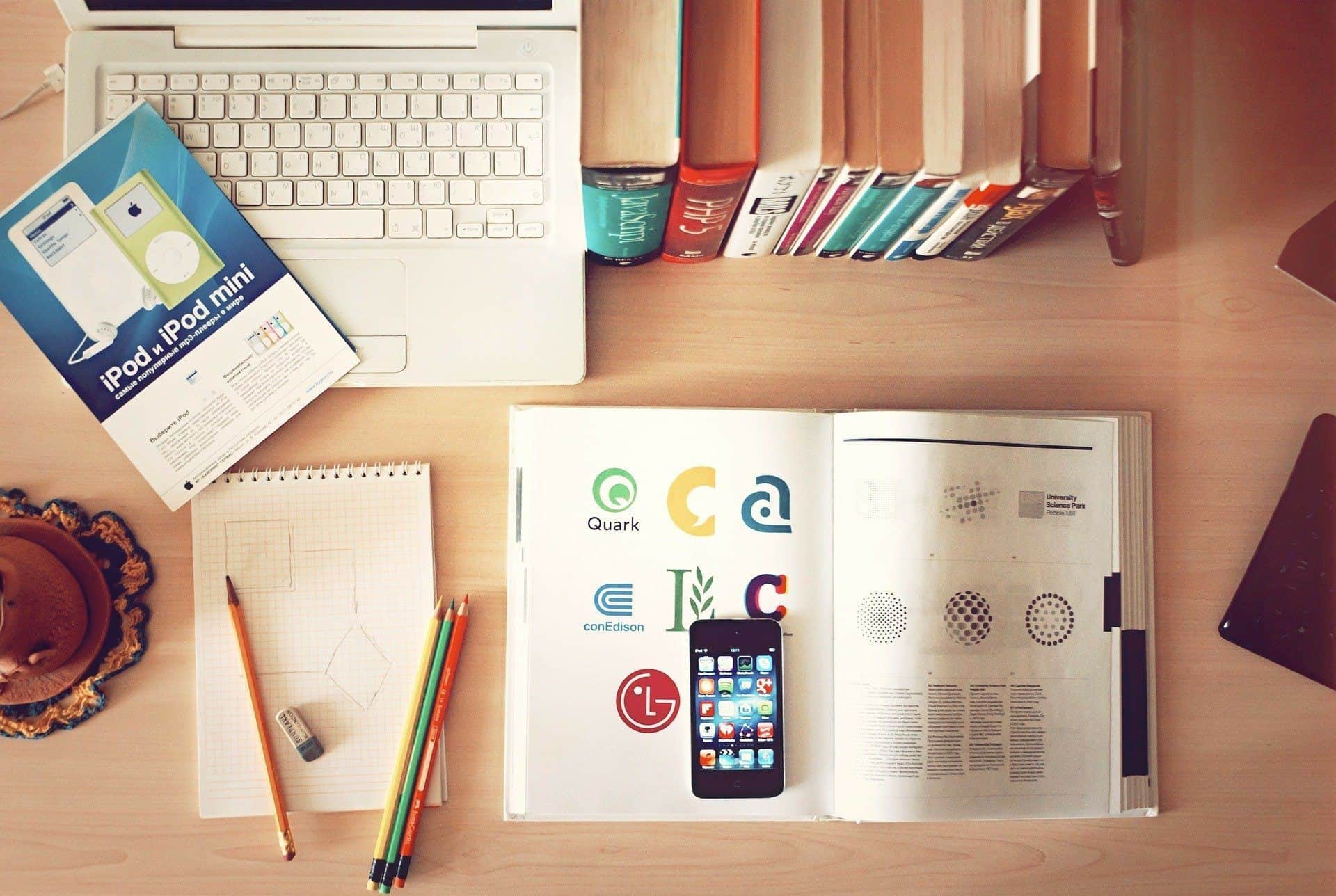
Increased Productivity. Productivity is the most obvious benefit of improving concentration—after all, it’s much easier to actually follow through and finish things when you can concentrate on them! This includes productivity at home, in the workplace, or in the training field;
Memory. Having the ability to concentrate is closely tied to memory. It is only while you are consciously directing your attention that you can retain information, and being able to concentrate on something allows you to keep it in your memory. For example, going into a room and forgetting what you wanted to do in it is a clear situation where both concentration and memory fail. By improving your concentration skills, you can also improve your ability to retain information;
Precision. The ability to fully concentrate and be present will also increase your precision. If you try to do something while struggling to focus, you are more likely to make mistakes, while being able to focus will allow you to carry things out more precisely;
Decisiveness. The ability to concentrate is a very important skill for effective decision making. When presented with a problem, being able to focus on each one of the elements related to it and learning to tune out distractions and irrelevant information will help you target the answer or solution much more quickly, and chances are you will make a better decision; and finally…
Well-Being. The ability to concentrate also helps with mental well-being in a variety of ways. Because of how it correlates with mindfulness, it teaches you how to manage your thoughts, not to mention the residual benefits of being more productive and effective at whatever it is you spend your time doing.
But those are the just the “general” benefits. Let’s take a look at…
The Importance of Concentration in Particular Areas of Your Life
Increased focus can benefit many spheres of your life, including…
Work
We spend most of our waking hours in the workplace, so it’s no wonder that this article seems heavily geared towards work. Sometimes it seems like the world has bought into a “cult of productivity” where working and producing things is the highest of all achievements… and, well, that probably won’t change!
The good news is, improving your concentration can help you get more done in less time, making you more effective, and leaving you more opportunity for tasks that are meaningful to you personally. It also means more time for breaks, which are good for your mental health, and good for—yep, you guessed it!—your productivity.
Here’s the thing we often miss: better effectivity can make a big difference outside work, as well. If you work for a company, it can result in promotions and better pay and a better lifestyle; if you’re an independent contractor, it can mean more jobs and more wages (or more time off, if that’s what you choose!). With our work life tied so closely to our regular life, enhancements to one can mean enhancements to the other.
School
Students have to learn to concentrate in two very different ways: they need to concentrate during lectures, but they also need to concentrate while working on their actual assignments. The latter is very similar to concentrating on tasks at the workplace, making it a “life-long” skill.
The former, concentrating during a long lecture, can be tougher, especially if the topic doesn’t interest you. To concentrate while listening, beyond adopting concentration boosting-practices like mindfulness and adopting healthy habits, also find a way to keep yourself extra engaged in the topic. The best way is by keeping other parts of your body occupied, since sitting still can be very difficult.
Writing notes is a great method, since it keeps you both physically and mentally occupied, especially if you are a fast typer or if you’re comfortable writing in shorthand.
For others, doodling or doing something mindless like easy knitting during a lecture can help even more, especially if it’s a topic that doesn’t require note taking (although there aren’t many of those).
Depending on the length of the class, you might want to ask your lecturer for breaks—this will help you, but it might also be a big relief for other students in the class. Finally, the biggest tip is to make sure you don’t have other distractions! Put your phone away, and if you type notes on a computer, resist the temptation to open social media apps or even email.

Home
We place a lot of important on our work tasks and studies, and can often forget that concentration is also important at home. Learning to organize tasks and manage attention can have a wide variety of benefits at home, from allowing you to be more effective at completing housework tasks to allowing you to be fully present when interacting with your family, engaging in a hobby, or even simply relaxing. By knowing how to concentrate and focus, you can actually take a step back from work and leave work at work and “be here now.”
See? It’s all coming together.
Interpersonal Relationships
When we talk about focus, it might seem like something very solitary, but concentration is actually critical for maintaining healthy interpersonal relationships with friends, family, significant others, and colleagues. Have you ever had a conversation with someone, and then realized part way through that they weren’t listening to you? That lapse in their concentration probably didn’t make you feel very good—you probably felt disrespected, and in turn a little sad, embarrassed, or angry.
This is one of those instances where time management won’t help you, but you can absolutely benefit from mindfulness while talking to someone, by making a conscious decision to focus on listening and understanding what they have to say (perhaps instead of tuning them out while planning your answer). For very important conversations, getting rid of potential distractions will also help, like putting your phone on silent.
Go Forth and Prosper, Attentively (and a Message to Our Archery Readers)
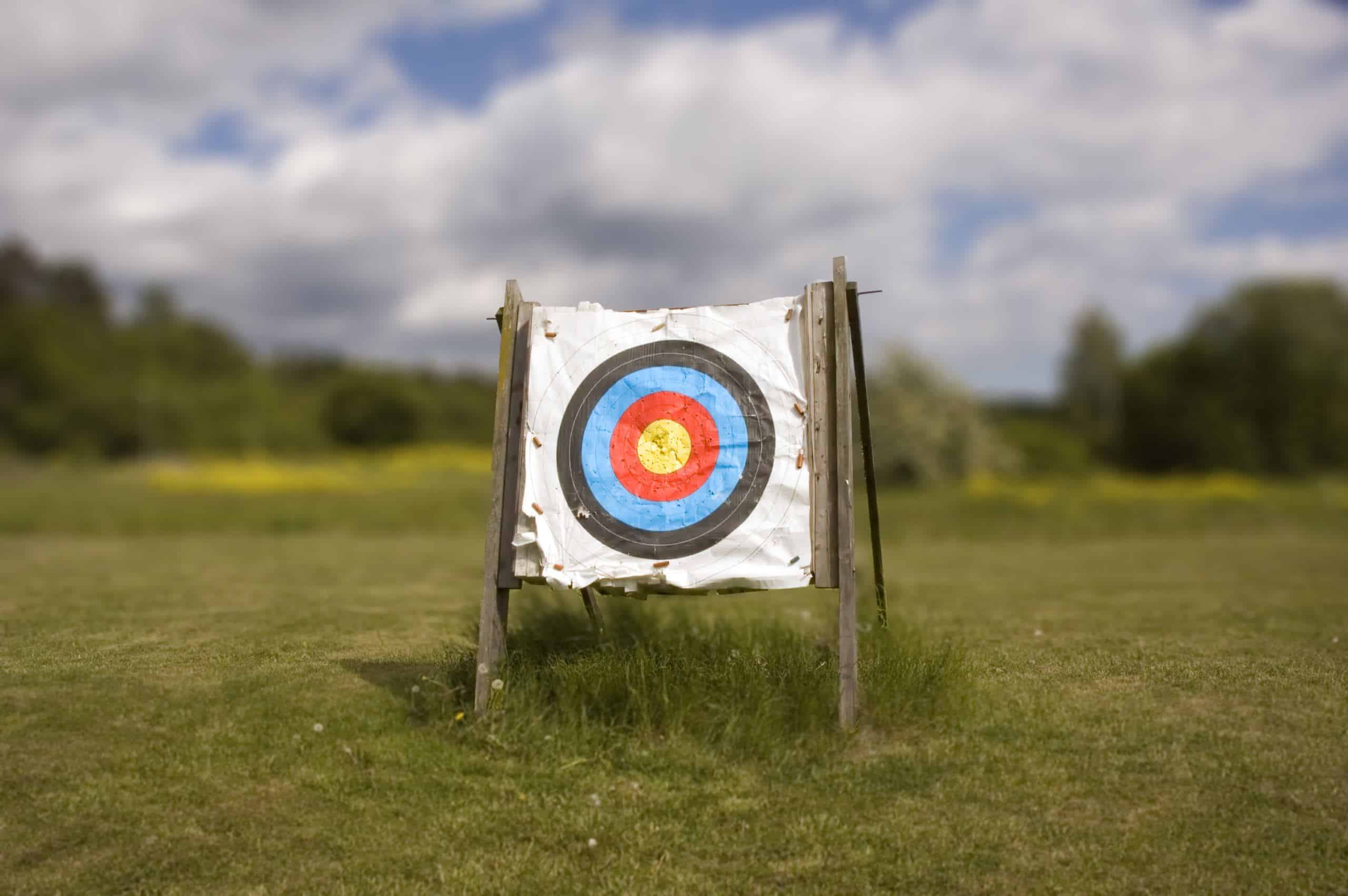
Hopefully there’s something here that will help you—regardless of the tasks you want to accomplish. If you have anything to add—a technique that works for you, or something that we haven’t mentioned—send us a line and let us know. We’d love to hear about it.
If you’re an archer, we hope you’ll pay special attention to the tips above. We, as archers, are obsessed with focus and attention, because it’s the primary goal of our sport: in order to be successful, we extreme, laser-like focus on the target. We need to quiet that inner voice that keeps yapping away, shut out all external stimuli from, and direct our mental intent at a singular object. In many ways, concentration isn’t an aspect of the sport, it IS the sport.
Whatever your goals are, we hope you achieve them, and we wish you all the best. Good luck, have fun, and happy focus!
